Culture Shock - Tea and 5 Other Things You Might Not Know About Ukraine
October 12, 2013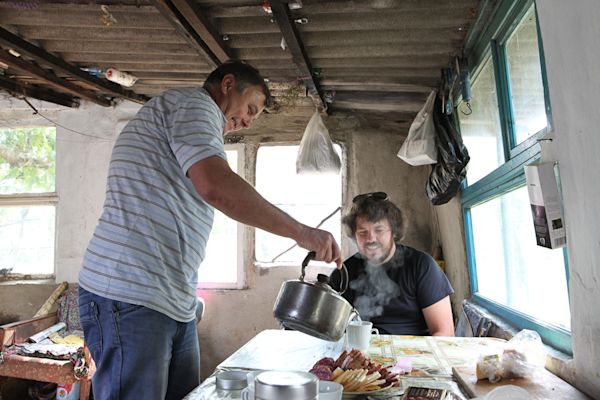
I'm going where? Ukraine!
Being Kiva Fellow is being flexible, and for me that meant both the fear and the thrill of going where I'd never thought I'd go - the former Soviet Union! As a media fellow in Eastern Europe, I've been traveling and photographing Kiva borrowers in Southern Ukraine and Crimea - near the black sea - for about a month now. I've met farmers who have taken out loans for greenhouses, drip irrigation and small motor tillers through one of Kiva's field partners here - ACM (Agro Capital Management). Many farmers received land after the break-up of the Soviet Union, but they don't have machines or irrigation, and can't afford to buy a system all at once. ACM provides the equipment through an innovative lease-to-own program, and makes sure small farmers connect with the training and support they need.
Ukraine is a study in contradictions - urban and rural, sophisticated and quaint, Western and Soviet…
1. Kiosk Shopping is Everywhere
Much of the consumer culture, at least in Crimea can be seen on the street. You can buy just about anything out of a Kiosk (or a table) here - magazines, water, bread, beer, chocolates, fruits and vegetables. Makes it hard for a foreigner with no language skills. I point, and smile.
2. Soviet Architecture Is Everywhere
I'm in awe of the Soviet-style apartment blocs, which are now owned and rented privately. Garages for cars are usually down the way a bit - best reached by bus.
 Apartment, Soviet-Style
Apartment, Soviet-StyleSoviet-era village signs (mostly celebrating wheat, which most farmers were required to grow) still announce where we are, though bigger cities have replaced them.
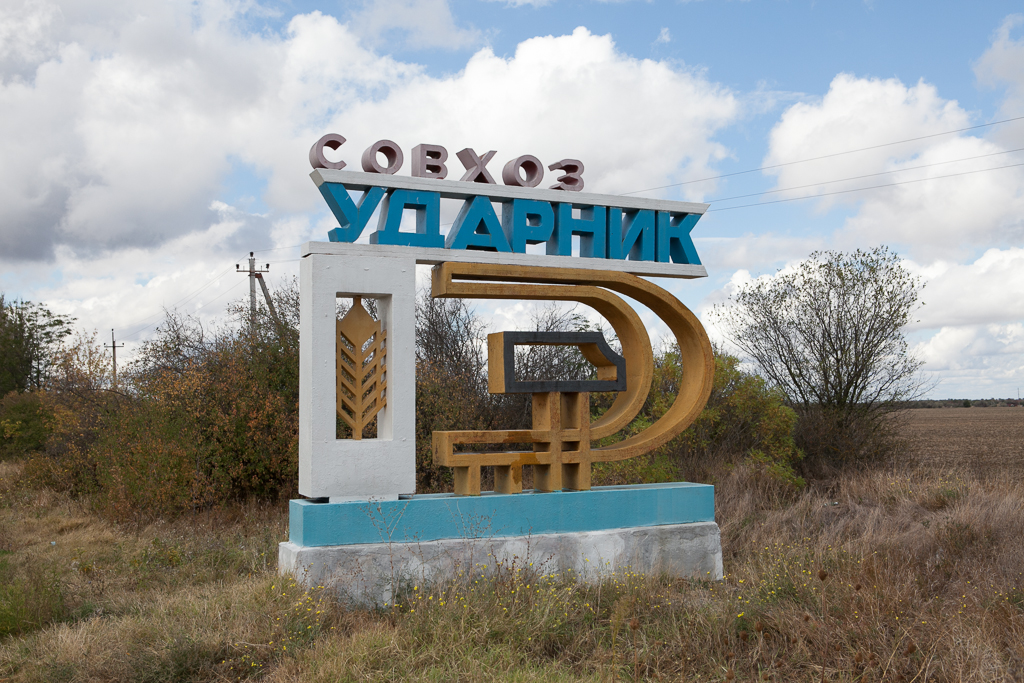 Soviet village sign
Soviet village signMany former collective farmhouses sit unused and vacant - individual farmers received a share, but often no one can afford to work the land.
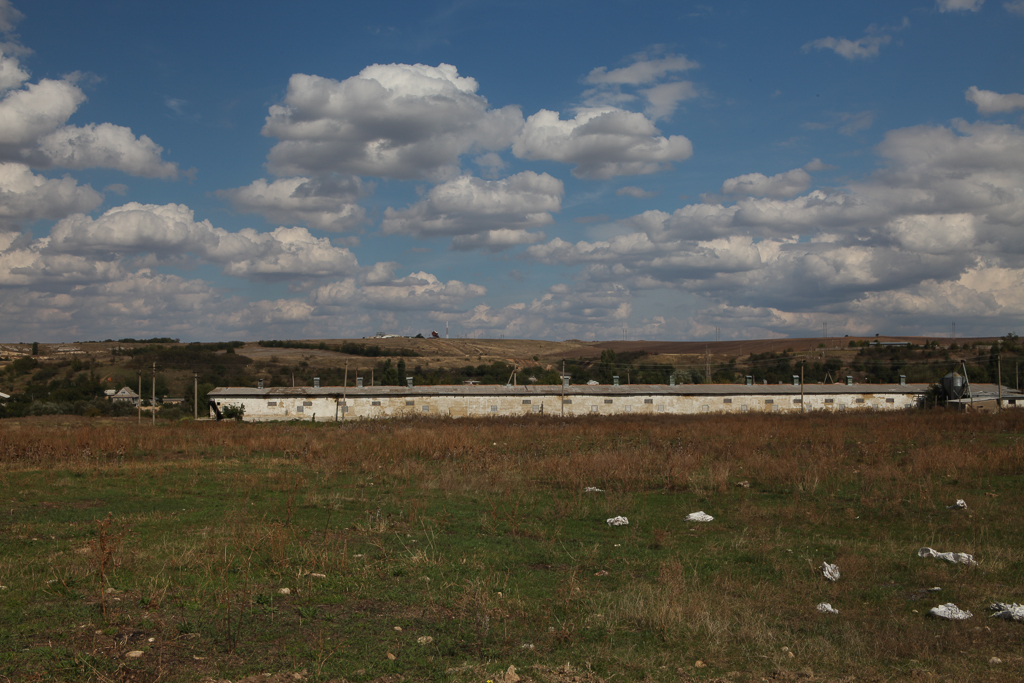 Former Collective Farm near Simferopol
Former Collective Farm near Simferopol3. Village Life Can Be Quite Basic
Village life is dirt roads, bicycles, cows in the road. Sergei, a Kiva borrower we visited in Crimea - just recently got running water through a pump and a trough in his living room. Many have internet and cell phones and some rely on intermittent electricity and outhouses.
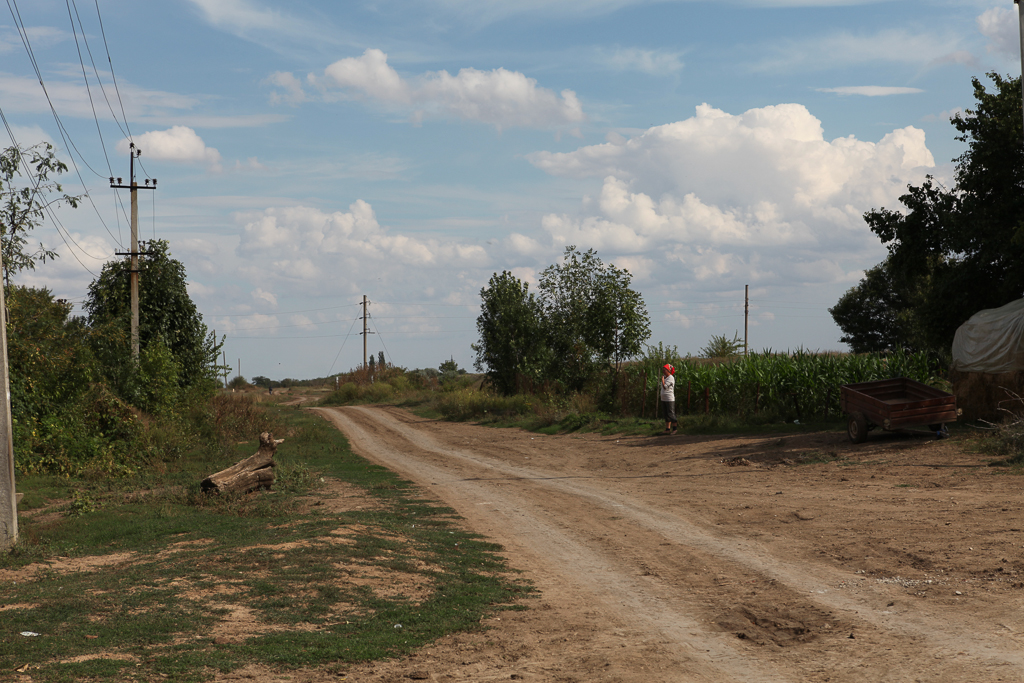 Sergei's village in Crimea
Sergei's village in Crimea4. The Marshrutka is How We Roll
Want to get around? You'll probably rely on the private bus system - the marshrutka. Everyone knows where the stops are, though few are marked, and you must yell out to request a stop. Pass your money to the front to pay the driver and your change will be politely passed back.
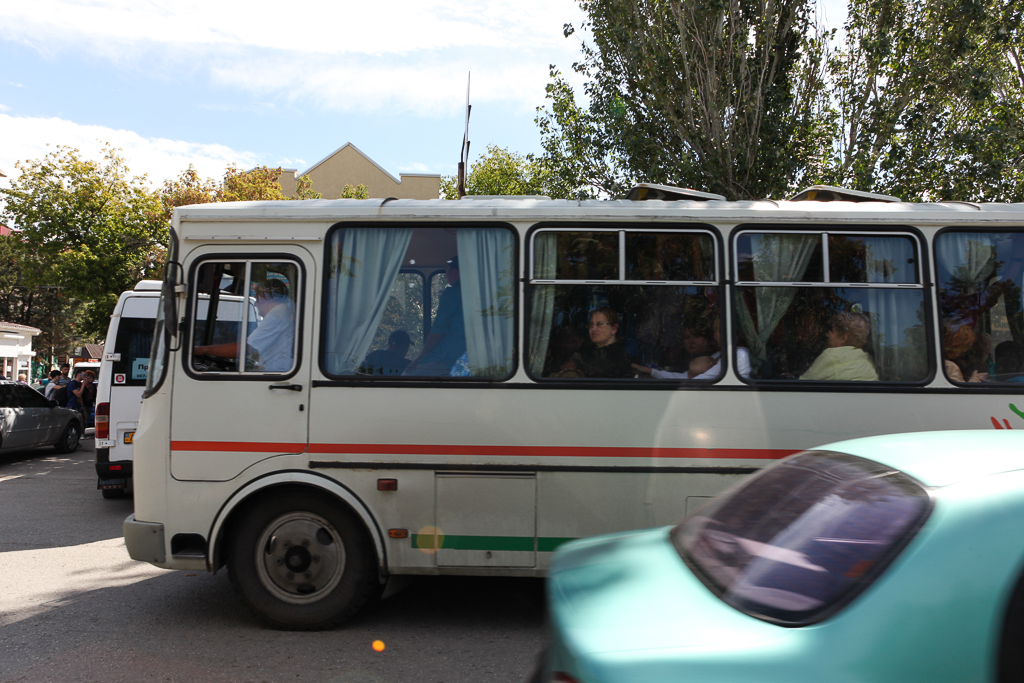 Marshrutka in action
Marshrutka in action5. Farmer's Markets are Everywhere
Called rinoks, again - you can buy just about anything from a lady with a table here! Fuit and vegetables in season, honey, prepared salads, fish, meat - go crazy!
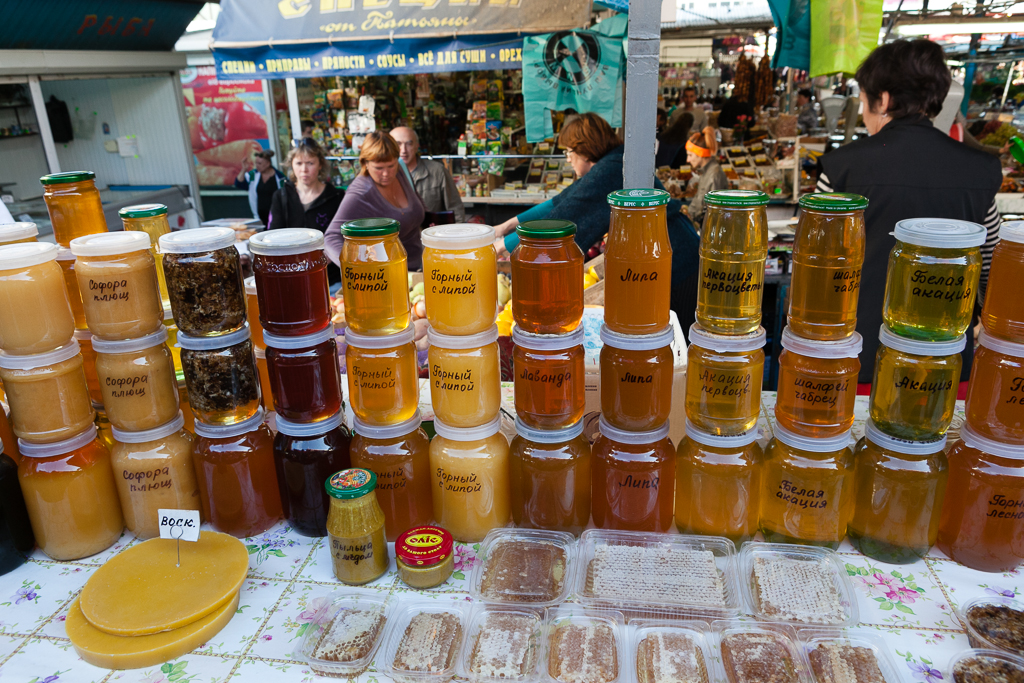 Honey or мед at the Market in Yalta
Honey or мед at the Market in Yalta6. Tea is Vital
Tea means tea or coffee, cakes, cookies, chocolates and once, thanks to Elena, the accountant at ACM - a few raw quail eggs (with salt) for me. It's an opportunity to talk and laugh, and eat, eat, eat! When Grisha, the loan rep from ACM and I visited Sergei, he invited us to tea. I brought chocolate. I asked him questions about his Kiva loan, and he told us about the challenges of being a farmer in Crimea - access to water, prices, policies. Without the loan from ACM, he said he would have had seeds but no water or tractor and would have gone out of business. He was incredibly thankful for the loan and said he'd tell the rest of his village about Kiva and ACM.
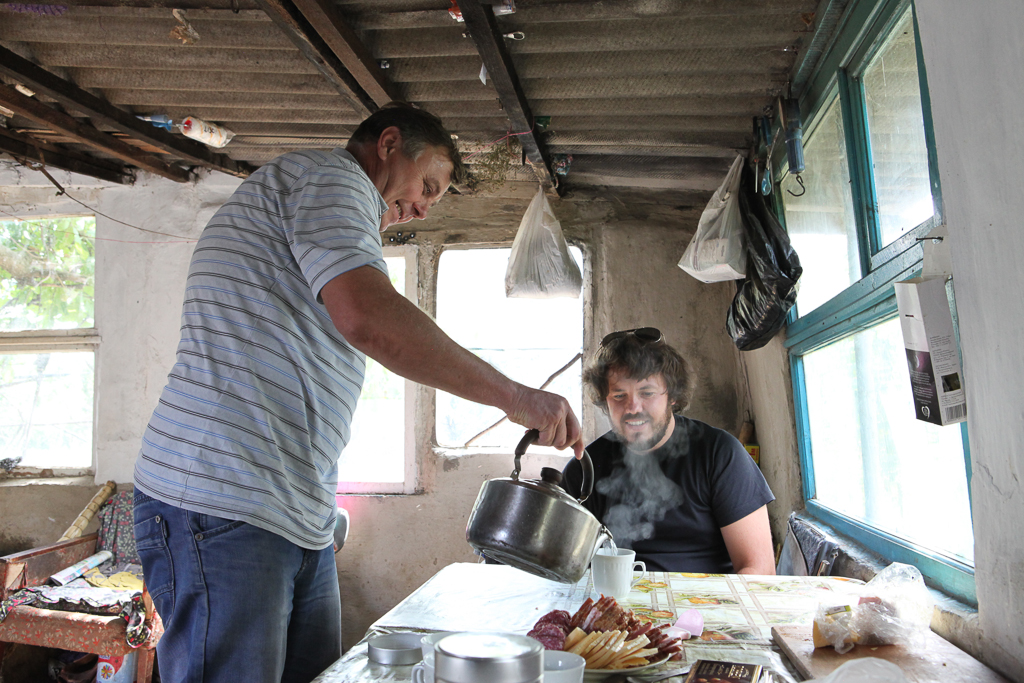 Kiva borrower Sergei offers Grisha tea during our visit
Kiva borrower Sergei offers Grisha tea during our visitSo far it's been a joy to experience Ukraine and an interesting Marshrutka ride!
Fund a loan to a small business in Ukraine on Kiva!
PREVIOUS ARTICLE
Kiva Brings Together 150 Inspired Students and Educators for First Ever Kiva U Summit! →NEXT ARTICLE
What Everyone Ought To Know To Avoid Looking Like A Naive Tourist In Nairobi →













